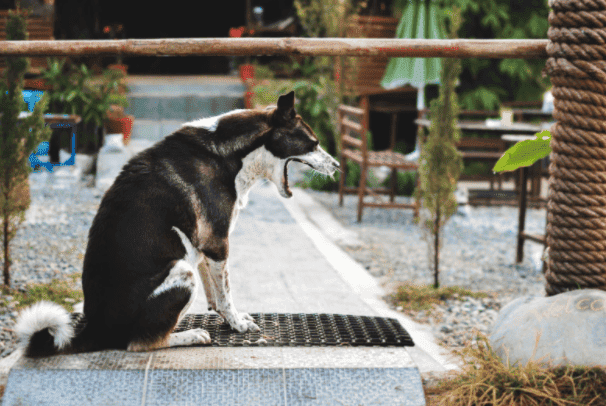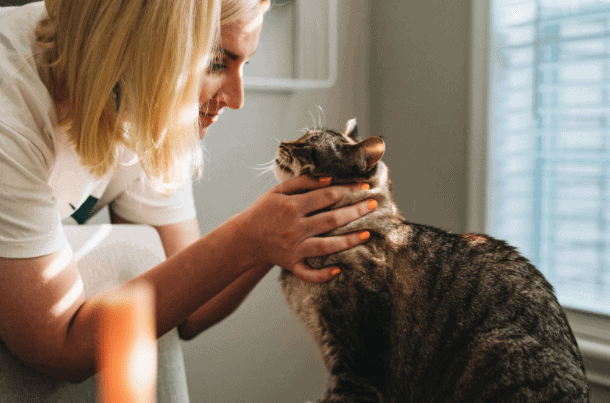Do you know what to do if you think your dog or cat has been poisoned?
Animal poisonings are some of the most common emergencies vet clinics handle. Dogs and cats take the lion’s share of all incidents – nine out of ten. Although human homes are cozier and safer than the wild, our homes can also be a danger. Research shows that most incidents of pet poisoning occur around the home area.
Unfortunately, many pet parents cannot tell when their fur baby is in distress and need urgent vet care. This 7-minute read will help save your fur baby’s life. Read on and learn about the symptoms of poisoning, what to do, and how to prevent future accidents.
Photo by Jyotirmoy Gupta on Unsplash
Pet poisoning – the symptoms
To save your fur baby’s life, you must first know the tell-tell signs that your pet is in distress and in need of emergency vet care. You should also know the contacts and location of nearby vet emergency centers.
Depending on the type of toxin and the nature of the contact, your pet will exhibit different signs of distress. Your fur baby could come into contact with a poison either by inhaling, swallowing, or through the skin.
Inhaled poisons. A dog or cat could inhale toxic fumes like insecticides, tear gas, or smoke emanating from fires where plastics and other dangerous materials are burning. The fumes could irritate and inflame your pet’s airways and cause symptoms like coughing, sneezing, tearing, twitching, drooling, or sudden loss of consciousness.
Ingested poisons. There are frequent cases of pets gobbling up human medication and foods unsuitable for pets like chocolate, raisins, sultanas, and many more. During the cold months, dogs and cats find chemicals like antifreeze irresistible. They could take a few licks or gulp down a bottle. When a pet swallows a toxin, it will express signs of gastrointestinal disturbance. Your dog or cat could have a low appetite, vomit, drool, foam in the mouth, and diarrhea.
Contact poisons. Some chemicals and plants can irritate when they come into contact with your pet’s skin. You may notice signs like excessive scratching or licking, restlessness, swellings, hives, or in severe cases, ulceration and bleeding.
Some signs of poisoning are subtle. For example, your pet could be agitated, drink or pee more than usual, become lethargic, have an elevated heart rate, or experience difficulty in breathing. Since animals don’t speak human, it is crucial to know your pet and their behavior when everything is okay. You stand a better chance of picking up on symptoms when you know what your fur baby is usually like.
What to do if you think your dog or cat has been poisoned
The first thing you should do is call a vet. While on the phone, they can take you through a few steps to know if your fur baby should be rushed to a vet emergency center. The vet can help you identify the toxic substance and take you through first aid steps to save your fur baby’s life.
Here are some actions recommended by TheVets.com:
- Try to identify the toxin. Make a note of the chemical, drug, or unsuitable food, and the quantity ingested. Take note of the signs your pet exhibits. For example, your pet is vomiting, take note of the frequency and how it looks. Don’t forget to let the vet know your fur baby’s age and approximate weight. If you can, carry the poisonous substance to the emergency center.
- Evacuate your pet from the danger zone. If it was a contact or inhaled poison, remove your dog or cat from the environment with the toxic fumes or irritants and take them to a safe area with fresh air. But only do so if it is safe. Do not endanger yourself.
- If your pet comes into contact with a skin irritant, put on protective gear and try to remove any traces of the toxin from their skin. This would be a good time to give them a thorough bath. But don’t jump right into it. Wait for a green flag from the vet.
- Check your pet’s vital signs – heart rate and breathing, especially if they are unconscious. If they are experiencing seizures, inform the vet.
- Do not induce vomiting unless you have been directed to do so by the vet. In some cases, vomiting does more harm than good. On the same note, do not give your pet any home remedy or treatments recommended on the internet. It is best to rely on the vet’s advice.
- Stay beside your fur baby and reassure them until you get to the vet’s or help arrives.
Pet poisoning, making your home and its environs safe
Most pet poisoning accidents are preventable. You will save yourself and your pet from stress and hurt by being proactive. The following steps will help you to make your home and its environs safer:
- Yes, you can prepare home-made feeds and treats for your furry friend. But avoid feeding your dog or cat on human food no matter how tempting it is or how much they look at you with those big and irresistible begging eyes. Pet poisoning surges around holidays and festive seasons due to swallowing chocolate, raisins, sultanas, and alcohol.
- Train your dog or cat to love their feeding bowl and avoid eating off the ground. It will help prevent them from indulging in human foods and protect them from traps set by pet haters.
- Pet proof your home. Keep medication and other potentially harmful substances away from your dog or cat’s reach. Make sure they are in a lockable cabinet and clean off any drops that could be in the open.
- Follow instructions on insecticides and rodenticides carefully. Do not let anyone try them on your fur baby.
- Learn more about plants that are toxic to cats and dogs, and avoid having them in your yard. Also, be on the lookout for poisonous plants wherever you go with your pet.
- Talk with pet care service providers who regularly interact with your dog or cat, like pet grooming professionals. You can learn a lot about what a healthy look and feel are really like.
- Report any signs of poisoned pet baits if you come across any.
Photo by Parker Coffman on Unsplash
A final word on what to do if you think your dog or cat has been poisoned
Do not wait until your pet shows further signs of distress to act. If you suspect your dog or cat has been poisoned, you are in a race against time. The sooner you call a vet and take appropriate actions, the better the chances of surviving the ordeal. Be keen about your pet’s behavior, and be proactive about preventing pet poisoning.


